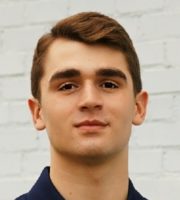
In-person interviews provide stronger due process
As colleges across the nation send students home and switch to remote classes due to the COVID-19 outbreak, some are moving ahead with even more stressful activities: Title IX proceedings.
Nesenoff & Miltenberg partner Andrew Miltenberg told The College Fix that his firm is representing accused students experiencing such treatment at more than 50 schools.
Even his clients who have tested positive for the novel coronavirus have been told that their interviews with investigators would be delayed by only a week, according to the lawyer.
He shared recent communications with three universities on behalf of clients: Purdue University’s Fort Wayne campus, Loyola University Chicago and Syracuse University.
The students accused of sexual misconduct at Purdue and Loyola have taken “social distancing” precautions urged by their schools, but those two universities have refused to reschedule their proceedings in light of coronavirus-related disruptions.
Remote interviews with the parties in proceedings raise due process issues, Miltenberg told The Fix in a phone call Sunday.
In-person interviews offer many important features that cannot be conveyed in teleconferences, such as body language, clarification and personal engagement, he said. The intimacy of a face-to-face interaction is very important for the outcomes of his clients’ cases.
His clients might pursue due-process claims against their schools since they have not been afforded an in-person hearing, even as the Department of Education and courts have increasingly recognized the importance of live interviews in the Title IX process, Miltenberg said.
This treatment shows that “corrupt and misguided Title IX procedures” often put the interest of the institution above the due process of students, he said.
MORE: Accusers use ‘street justice’ to harass accused students
 Warshaw Burstein partner Kimberly Lau (left), who also represents accused students in sexual misconduct proceedings, told The Fix she had not experienced similar responses from universities and did not know other lawyers who had. Lawyer Deborah Gordon, who represented the victorious accused student in a major appeals court precedent on live hearings, did not respond to queries.
Warshaw Burstein partner Kimberly Lau (left), who also represents accused students in sexual misconduct proceedings, told The Fix she had not experienced similar responses from universities and did not know other lawyers who had. Lawyer Deborah Gordon, who represented the victorious accused student in a major appeals court precedent on live hearings, did not respond to queries.
It’s possible that “respondents [accused] would have a more difficult time obtaining cooperation from witnesses” or be unable to “participate in person due to the impact of school closures and social distancing,” Lau said. It’s also harder to gather evidence, Miltenberg added.
It doesn’t make sense for colleges to refuse rescheduling when “businesses, courthouses and some federal government agencies” have closed amid concerns of spreading coronavirus, Lau said.
Even as the coronavirus causes delays in some Title IX proceedings, officials told The Chronicle of Higher Education they can move much of the process online. That’s because of previous use of technology to separate complainants and respondents during hearings.
The State University of New York held a two-part webinar series Friday and Monday on continuing investigations and adjudications “during campus closures and times of social distancing.”
Accuser has already met in person with investigator; accused deserves same
Miltenberg’s email requests that he shared with The Fix sought remote access to pertinent documents and rescheduling of investigators’ interviews until he can be present with clients. (Syracuse University opted to reschedule its proceeding with another Miltenberg client.)
In his request to Loyola, Miltenberg pointed out that Title IX Coordinator Timothy Love’s offer to meet in person, rather than do a videoconference, contradicts the university’s instructions to students to vacate the campus.
As such, his client had returned home at the behest of the university. Before leaving, the accused student wrote to Title IX investigator Brian Houze: “It is very important to me to meet with you in-person, as the complainant has already done, and to have my advisor in attendance with me.”
Videoconferencing the interview would leave Houze’s ability to assess his client’s credibility “significantly compromised and prejudicial,” the lawyer wrote. It would also deny Miltenberg’s ability to be present with his client during the interview, because his firm is complying with “federal guidance on restricting travel.”
The Fix asked Loyola why it would not reschedule the in-person meeting with Miltenberg and his client so he could have the same opportunities as the complainant; why the accused student was asked to come to campus after the university vacated students; and why Loyola did not address the client’s concern that this would skew the determination.
“Loyola University Chicago does not publicly comment on individual Office of Equity and Compliance (OEC) cases,” Director of Communication Anna Rozenich wrote in an email statement that does not answer Fix questions.
“The University remains absolutely committed to providing a fair and equitable process for all students even in the face of unprecedented challenges that COVID-19 transmission presents,” she wrote, providing a link to the Office for Equity & Compliance.
Loyola’s comment about its “fair and equitable process” is “doublespeak,” Miltenberg (below) told The Fix, because it has not made accommodations for his client. It should forgo hearings and interviews until students can attend live interviews if it wants to show its fairness.
MORE: First class action filed against university for Title IX due process violations

‘Available for review only in person, only on campus, and only for the next week’
In his request to Purdue, Miltenberg requested “remote digital access” to documents that required a response by March 20, during the extended spring break of the Fort Wayne campus.
“In spite of this nationwide, near-universal call for social distancing, [redacted] was sent a letter today [March 13] indicating that the preliminary investigation report in his disciplinary matter is available for review only in person, only on campus, and only for the next week, during Spring Break,” Miltenberg wrote to the university’s Title IX office.
He said these “limitations and requirements are entirely inappropriate and unduly impede” participation in the investigation, in which his client has “fully, voluntarily” participated.
Miltenberg’s client left the university under the advice of the administration and is continuing his classes remotely: “PFW [Purdue Fort Wayne] cannot force [redacted] to risk his health” and spend money traveling “needlessly.”
There’s no hurdle to providing access to the report, since the document was “undoubtedly, prepared on the computer and is capable of being conveyed remotely,” the lawyer wrote the university.
Director of Public Information and Issues Management Tim Doty told The Fix Thursday that PFW “can’t comment on specific matters,” but said the Miltenberg case “is being adjusted until the university returns to more normal operations.” Doty said that parties involved in the case already have or will “receive notice of the adjustments.”
As of Sunday, Miltenberg said neither he nor his clients had been notified of any changes to either the Purdue or Loyola cases.
Despite state-of-emergency declarations and shelter-in-place orders, universities have told him that their Title IX offices “are still in business” even as they have essentially shut down all other student functions, such as classes and graduations, Miltenberg said.
The purported “immediate threat” to accusers posed by the presence of accused students on campus no longer exists now that students have been sent home, he said. Universities have full discretion as to whether these proceedings must move forward or could be delayed.
Yet “Title IX is forging ahead and rushing to judgment as always,” Miltenberg said, questioning the sense of urgency among officials during this “tumultuous” pandemic.
MORE: UMich has spent more than $2.25M on lawyers in two kangaroo court lawsuits
IMAGE: fizkes/Shutterstock





Please join the conversation about our stories on Facebook, Twitter, Instagram, Reddit, MeWe, Rumble, Gab, Minds and Gettr.